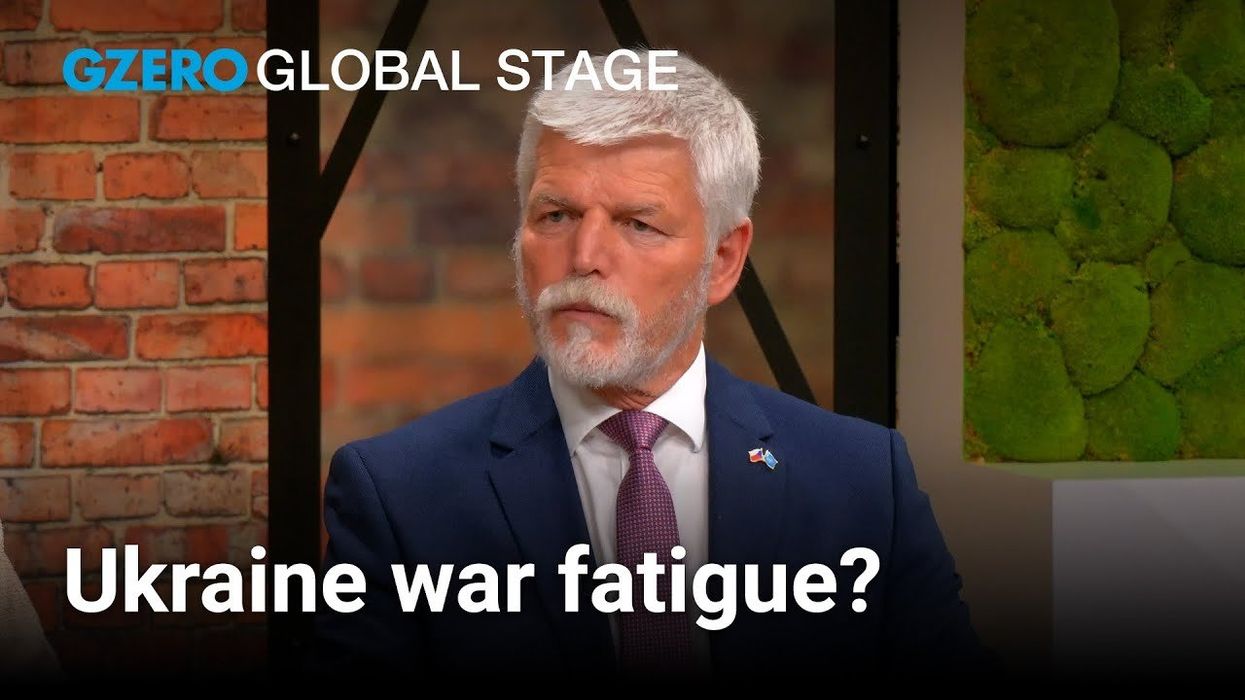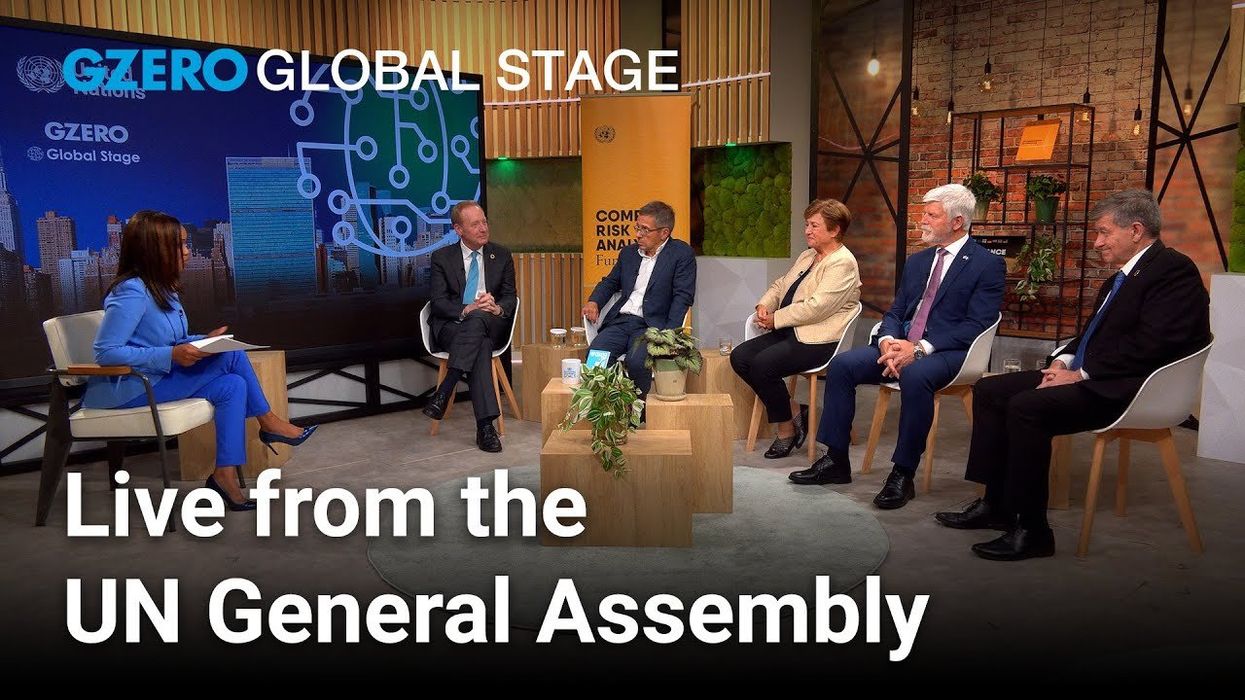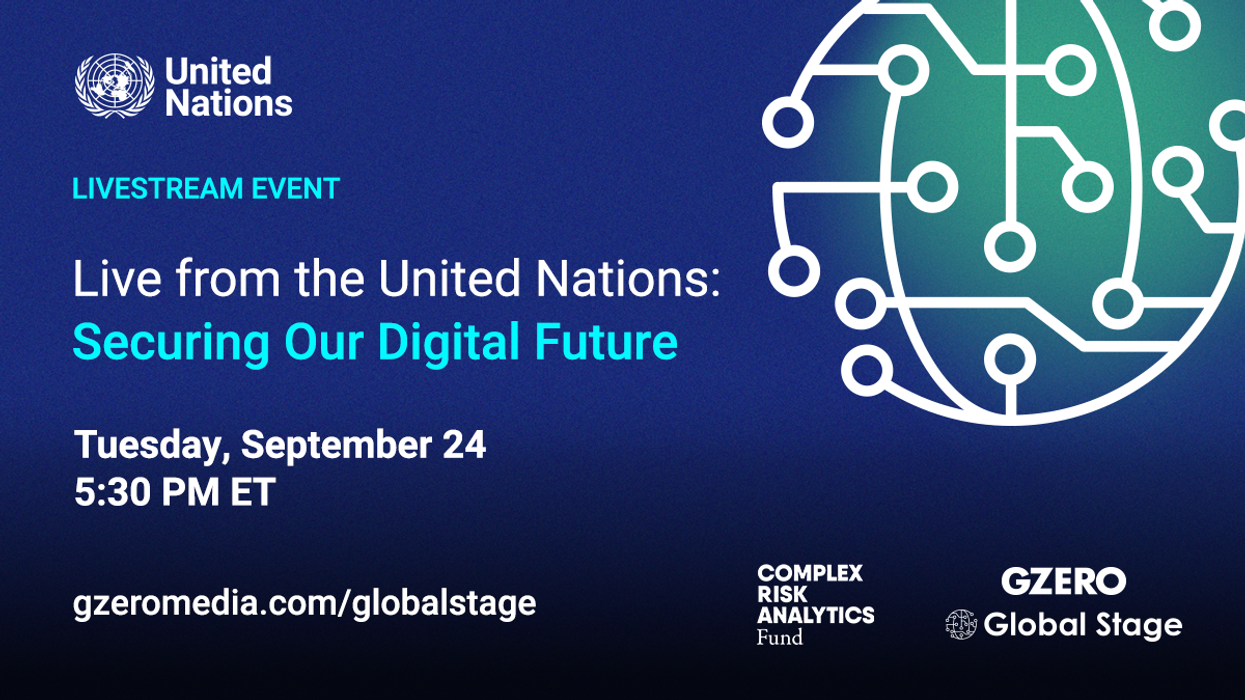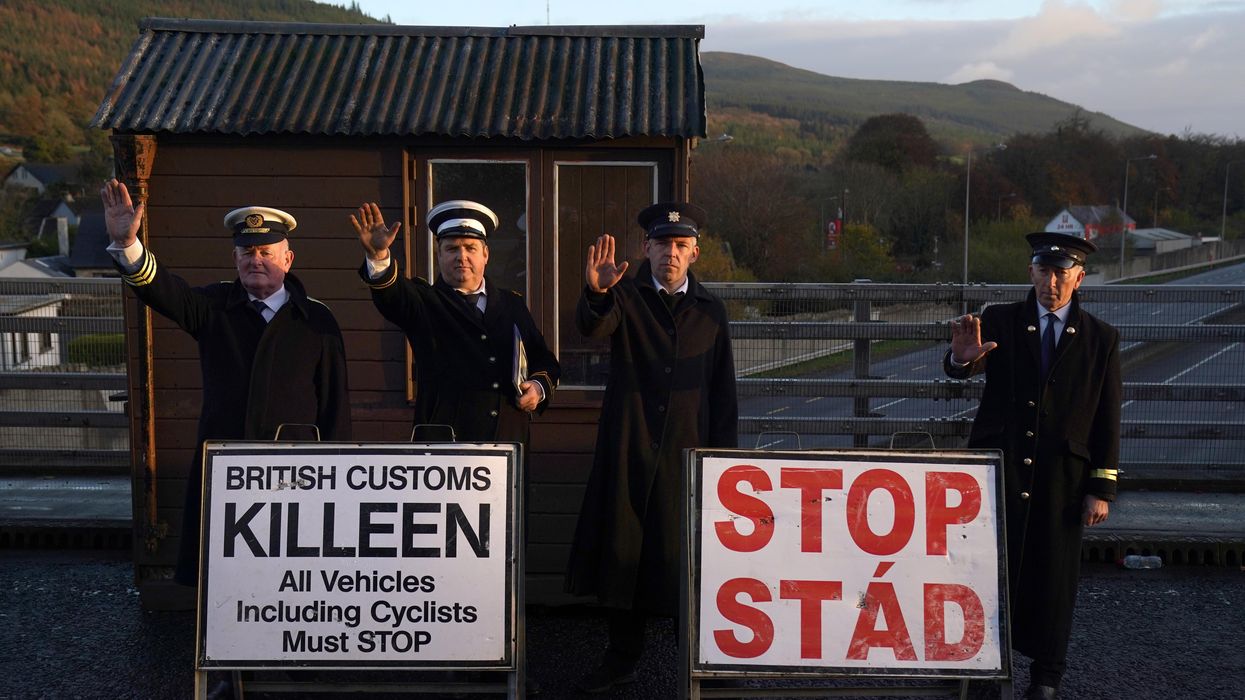UN General Assembly
Czech president Petr Pavel: Ukraine war fatigue weakening NATO unity against Russia
In a GZERO Global Stage discussion at the 79th UN General Assembly, Czechia President Peter Pavel highlighted the evolving dynamics within NATO nearly two years after Russia's invasion of Ukraine. He acknowledged that initial unity, which surged in response to the shock of the invasion, has waned as war fatigue sets in.
Oct 03, 2024




